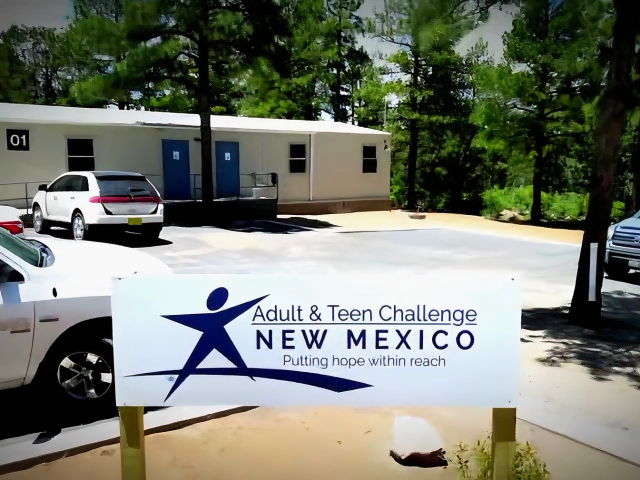More About Christian Drug & Alcohol Rehab Programs
Faith can be an anchor in difficult times, including recovery from drug or alcohol addiction. Christian rehab programs provide evidence-based addiction treatment while integrating prayer, biblical teachings, and fellowship. These programs are designed for individuals who want their spiritual beliefs to guide their healing.
Addiction can impact anyone, regardless of background, age, or faith tradition. If you or a loved one is struggling, Christian rehab centers may offer the holistic support needed to reclaim health, strengthen relationships, and grow spiritually.
What Is Christian Addiction Treatment?
Christian addiction treatment programs resemble standard rehab, but with faith-based practices woven throughout. Christian and faith-based addiction treatment programs may include:
- Bible study, prayer, and meditation integrated into treatment schedules.
- Christian counseling or peer support groups led by faith-informed professionals.
- Fellowship opportunities to build community rooted in shared beliefs.
Christian rehab is not limited to people of one denomination—it is open to anyone who wants to connect with their spirituality as part of recovery. Research shows that incorporating faith into treatment can increase resilience, support meaning-making, and encourage lasting sobriety.
Levels of Care in Christian Drug & Alcohol Rehab Programs
Like other specialty addiction rehabs, Christian drug and alcohol treatment programs offer a continuum of care based on medical needs and personal goals:
- Medical detox: Provided in a 24/7 supervised setting, medical detox helps a person remain both safe and comfortable while withdrawing from drugs or alcohol. Medical professionals are available around the clock and can administer prescription and over-the-counter medications to treat symptoms. Depending on several factors, the detox process can last for several days to a week, and sometimes longer.
- Inpatient drug and alcohol rehab: Also referred to as “residential treatment”, inpatient drug and alcohol rehab is a highly supportive level of care where the patient resides onsite and receives 24/7 monitoring, and support.2 The length of time a patient remains in inpatient care depends on their progress, however can last anywhere from a few weeks to several months.
- Partial hospitalization rehab programs (PHPs): Partial hospitalization programs, or “PHPs”, are the most intensive level of outpatient addiction care available. Patients of a PHP partake in about 4 to 8 hours of treatment a day for most days of the week and include participation in several evidence-based therapies.
- Intensive outpatient addiction treatment programs (IOPs): Like PHPs, intensive outpatient treatment (IOPs) are offered in a non-residential setting where therapy for substance use disorders is offered. Patients typically spend 9 to 20 hours per week at the facility and can continue to live at home while they are treated
- Outpatient addiction treatment programs: Patients enrolled in an outpatient program often attend treatment in the evening or over the weekend. This allows them to uphold a job and/or family or household responsibilities while still receiving proper care for their addiction.
Evidence-Based and Faith-Based Addiction Treatment Approaches
Christian and other faith-based rehab programs for alcohol or drugs typically use evidence-based addiction treatment and therapies that are not specific to Christian rehab but instead are used across all treatment platforms. Some treatment approaches offered at Christian addiction treatment programs can include:
- Cognitive behavioral therapy (CBT), which helps people replace maladaptive behaviors with positive coping skills, anticipate likely problems, and increase self control so they can engage in their daily lives in a more effective manner(1).
- Dialectical behavior therapy (DBT), which can help reduce out-of-control and self-harming behaviors, build distress tolerance, improve relationships with others, and regulate emotions successfully(2).
- Motivational interviewing, which aids patients in resolving their ambivalence about getting help and gets them actively participating in their recovery(1).
- EMDR therapy, which is a specialized type of treatment designed to help people process distressing thoughts, behaviors, and emotions related to traumatic events and utilizes rapid eye movements to achieve these and other goals(3).
- Contingency management, implements recreational, familial, vocational, and social reinforcers and material rewards to promote desired behavioral changes(1).
- Individual counseling, where patients meet with a counselor on a 1-on-1 basis to work on issues and concerns specific to them and their experiences(4).
- Group therapy, where patients gather to share experiences and gain support from each other during sessions led by a trained therapist(4).
- 12-Step programs, which involve working through the 12 Steps of recovery with the assistance of a sponsor and reliance on God or a higher power(4).
Faith practices also include prayer, meditation, Bible study, worship services, and Christian peer counseling, helping patients integrate values like forgiveness, purpose, and grace into their healing journey.
Aftercare in Christian Rehab
Recovery does not end when treatment is complete. Aftercare helps maintain sobriety and spiritual growth. Examples include:
- Christian-focused aftercare programs.
- Sober living homes with faith-based support.
- Local church recovery ministries and peer groups.
- Ongoing Christian counseling or Bible study groups.
Does Insurance Cover Christian Rehab?
Yes, health insurance may cover addiction treatment at a christian drug and alcohol rehab facility. Under the Affordable Care Act (ACA), addiction and mental health treatment are considered essential health benefits. This means most insurance plans must cover some portion of treatment, including Christian-based programs. Coverage varies by provider, so it’s important to confirm your benefits with your insurer or a treatment center’s admissions team.
Finding a Christian Treatment Program Near You
If you’re ready to begin recovery with faith as a foundation, search Christian rehabs near you. There are many treatment programs that offer supportive environments where faith and evidence-based treatment work hand-in-hand.
Sources
- National Institute on Drug Abuse. (2014). Principles of drug addiction treatment: a research-based guide (third edition).
- Dimeff, L.A., & Linehan, M.M. (2008). Dialectical behavior therapy for substance abusers. Addiction science & clinical practice, 4(2), 39–47.
- U.S. Department of Veterans Affairs. (2023, March 30). Eye movement desensitization and reprocessing (EMDR) for PTSD.
- Center for Substance Abuse Treatment. (2014). What is substance abuse treatment? A booklet for families. HHS Publication No. (SMA) 14-4126. Rockville, MD: Substance Abuse and Mental Health Services Administration.























